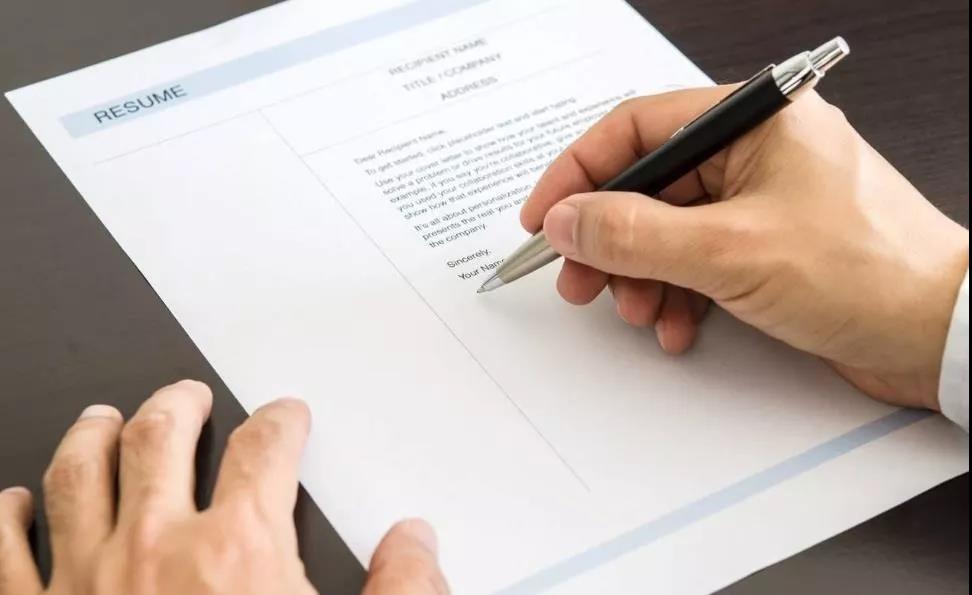中考介词第1)comeback回来2)comedown下来3)comein进入,进来4)comeon快,走吧,跟我来5)comeout出来6)comeoutof从……出来7)comeup上来8)c下面是小编为大家整理的中考介词集锦6篇,供大家参考。

中考介词 第1篇
1)come back 回来
2)come down 下来
3)come in 进入,进来
4)come on 快,走吧,跟我来
5)come out出来
6)come out of 从……出来
7)come up 上来
8)come from 来自……
9)do one"s lessons/homework 做功课/回家作业
10)do more speaking/reading 多做口头练习/朗读
11)do one"s best 尽力
12)do some shopping (cooking reading, cleaning)买东西(做饭菜,读点书,大扫除)
13)do a good deed (good deeds)做一件好事(做好事)
14)do morning exercises 做早操
15)do eye exercises 做眼保健操
16)do well in 在……某方面干得好
17)get up 起身
18)get everything ready 把一切都准备好
24)be glad to do 很高兴做……
25)be late for ……迟到
19)get ready for (=be ready for) 为……作好准备
20)get on (well) with 与……相处(融洽)
21)get back 返回
22)get rid of 除掉,去除
23)get in 进入,收集
24)get on/off 上/下车
25)get to 到达
26)get there 到达那里
27)give a call 给……打电话
28)give a talk 作报告
29)give a lecture (a piano concert)作讲座(举行钢琴音乐会)
30)give back 归还,送回
31)give……some advice on 给……一些忠告
32)give lessons to 给……上课
33)give in 屈服
34)give up 放弃
35)give a chance 给……一次机会
36)give a message to…… 给……一个口信
37)go ahead 先走,向前走,去吧,干吧
38)go to the cinema 看电影
39)go go bed 睡觉(make the bed 整理床铺)
40)go to school (college) 上学(上大学)
41)go to (the) hospital 去医院看病
42)go over 过一遍,复习/ go over to 朝……走去
43)go fishing/skating/swimming/shopping 去钩鱼/滑冰/游泳/买东
44)go home (there) 回家去(去那儿)
45)go round 顺便去,绕道走
46)go up 上去
47)go out for a walk 外出散步
48)go on (doing) 继续(做……)
49)go on with one"s work 继续某人的工作
50)go upstairs/downstairs 上/下楼
51)(the lights) go out (灯)熄了
52)have a lesson (lessons)/a meeting 上课/开会
53)have a football match (basketball match) 举行一场足球(蓝球)赛
54)have dictation 听见
55)have a try 试一试
56)have a good/wonderful time 玩得很高兴
57)have a lecture (a piano concert) 听讲座(听钢琴音乐会)
58)have a report (talk) on 听一个关于……的报告
59)have a glass of water (a cup of tea) 喝一杯水,(一杯茶)
60)have breakfast/lunch/supper 吃早饭/午饭/晚饭
61)have a meal (three meals) 吃一顿饭(三餐饭)
62)have a dinner 吃正餐
63)have bread and milk for breakfast 早饭吃面包和牛奶
64)have (have got) a headache 头痛
65)have a fever 发烧
66)have a cough (a cold) 咳嗽(感冒)
67)have a look (at) 看一看……
68)have a rest (a break) 休息一会儿(工间或课间休息)
69)have a talk 谈话
70)have a swim/walk 游泳/散步
71)have sports 进行体育锻炼
72)have a sports meet (meeting) 开运动会
73)have something done 让人(请人)做……
74)have a test/an exam 测验/考试
75)have an idea 有了个主意
76)had better do (not do ) 最好做……(最好不要做……)
77)have a word with 与……谈几句话
78)help with help do 在……方面帮助…… 帮助……做
79)help oneself to some chicken/fish/meat 请随便吃点鸡/鱼/肉
80)help each other 互相帮助
81)keep up with 跟上……,不落后于……
82)keep silent/quiet 保持沉默/安静
83)keep doing 使……一直做……
84)keep one"s diary 记日记
85)make a noise (a lot of noise, much noise, noises)吵闹(十分嘈杂,响声)
86)make a living 谋生
87)make do 迫使某人做……
88)make faces (a face)做鬼脸
89)make friends (with)与……交朋友
90)make a mistake (mistakes)犯错误
91)make room/space for 给……腾出地方
92)make a sentence (sentences)with 用……造句
93)make a fire 生火
94)be made from/of 由……制成
95)be made in 在……地方制造
96)look out of (outside) 往外看(看外面)
97)look up a word (in the dictionary)
98)look up 往上看,仰望
99)look after 照管,照看,照顾
100)look for 寻找
)look like 看上去像
102)look fine/well/tired/worried 看起来气色好/健康/疲劳/忧虑
103)look out 当心,小心
104)look on …as… 把……当作……看待
105)look around 朝四周看
106)look at 看着……
107)put on 穿上(衣服),戴上(帽子),上演(戏剧)
108)put up 建造,搭起,挂起,举起,张帖
109)put into 使进入,输入
110)put one"s heart into 全神贯注于
111)put…down… 把……放下
112)put…into… 把……译成
113)set up 竖起,建起
114)set off 出发,动身
115)set out 出发
116)set an example for 为……树立榜样
117)send for 派人去请(叫)
118)send out 放出,发出
119)end up 把……往上送,发射
120)take one"s advice 听从某人劝告
121)take out 拿出,取出
122)take down 拿下
123)take place 发生
124)take one"s place 坐……的座位,代替某人职务
125)take the place of 代替……
126)take a walk/rest 散步/休息
127)take it easy 别紧张
128)take 随身带着
129)take to a park/London for one"s holidays 带某人去公园/伦敦度假
130)take care of 关心,照顾,保管
131)take a look (a last look) at 看一看(最后看一眼)
132)take an exam 参加考试
133)take away 拿走
134)take back 收回,带回
135)take hold of 抓住……
136)take off 脱下(衣,帽,鞋等)拿掉
137)take (an active) part in (积极)参加(活动
138)take photos 拍照
139)take some medicine 服药
140)take a bus/train, boat/ 乘公共汽车,火车/船
141)turn on 开,旋开(电灯,收音机等)
142)turn off 关上(电灯,收音机等)
143)turn in 交出,上交
144)turn…into… 变成
145)turn to 翻到,转向
146)turn down (把音量)调低
147)turn…over 把……翻过来
148)play basketball 打篮球,football 踢足球,volleyball 打排球
149)play games 做游戏
150)play the piano (the violin) 弹钢琴(拉小提琴)
151)play with snow 玩雪
152)play a joke (on) 对……开玩笑
中考介词 第2篇
英语是一种语言,它源于生活,并用于生活。学生在学习的过程中,需要记忆,对学到的语言知识要不断地使用和练习,用来巩固这些知识。要想提高学生的英语综合素质,就必须先解决如何学的问题。笔者根据自己的教学体会和经验,认为帮助学生养成以下几种良好的学习习惯是学好英语的关键。
一 . 养成良好的“读”的习惯。
“读”是学习英语的重要手段之一。“读”有两个方面的含义:一是指“朗读”。朗读主要是运用正确的语音、语调,培养语感的过程。对于所学的单词、短语、对话或课文,必须多读,熟读,达到朗朗上口的程度。背诵是笨办法,但也是学英语的较好方法之一。这里也有个熟能生巧的问题,越背越熟练,越背越觉得学习更简单、更容易了。“读”的另一层内涵是指“阅读”。“冰冻三尺,非一日之寒。”除了每天学习的课文,学生还要每天阅读一篇和教材同步的英语短文。“阅读”要坚持由浅入深,随着英语知识的增多,逐步增加阅读量和难度。通过“阅读”,不仅能巩固和扩大词汇量,还能帮助学生了解英语特有的习惯用语、社会背景及国外的风土人情,同时,又可以使学生在考试中熟练地做好“完形填空”和“阅读理解”等题目。
二 . 养成良好的“说”的习惯。
学英语的最终目的是交流,要引导学生多动口,克服怕说错和害羞的心理障碍。教师在课堂上要精讲多练,给学生提供尽可能多的练习机会。要经常在课堂上安排朗读、对话、复述、问答和表演等练习,还可以给学生增加一些他们感兴趣的“说”的活动。例如:用英语作自我介绍、演讲比赛、讲故事等。另外,还可以带着学生走向社会,走进生活,把所学的英语知识和社会实践结合起来。这不仅能锻炼学生的听说能力,培养用英语思维的能力,还可以增强学生把所学的语言和文化知识以口头形式输入大脑,为以后使用作好储备。
三 . 养成良好的“听”的习惯。
“听”和“说”是相辅相成的,只有“听”和“说”的能力提高了,英语的水平才可以提高。除了在课堂上做听力练习外,学生还要养成每天听英语录音磁带的好习惯。英语录音磁带有两种:一种是英语教材的辅助磁带,另一种是专用的听力训练磁带。老师要指导学生选择难易程度相当、适合学生的听力材料,每天进行听力训练,持之以恒,学生们“听”的能力自然会提高。
四 . 养成良好的“动笔”习惯。
在学习英语的过程中,“听”、“说”、“读”、“写”几方面是相互促进,相互影响的,学生必须养成“写”的习惯。“写”有几个方面的内涵:一是养成良好的书写习惯,二是养成勤做笔记的习惯,三是养成良好的写作习惯。“读”是对知识的吸取和摄入,“写”是信息的反馈和提取。通过“写”,能进一步提高和完善学生的听说能力。老师在教学过程中,要经常给学生布置一些课内外笔头练习,让学生每天坚持写几句话,日积月累,学生的英语写作水平就会逐渐得到提高。
五 . 养成良好的“预习”和“复习”习惯。
“预习”是培养学生自学能力的重要途径之一。“学起于思,思起于疑”,课前预习就是寻“疑”。对新课内容经过预习后,学生带着问题有的放矢地听每一课的讲解,学起来就会有轻松之感,课堂效果也就好一些。科学的复习方法一是课堂巩固,二是课后复习。按照正常的方法复习,既能巩固知识,又能增强学生学习的兴趣和信心,对学生大有益处。
中考介词 第3篇
连词概述:连词是一种虚词,用于连接单词,短语或句子,但不单独做句子成分。按照连词的性质,可将连词分为并列连词和从属连词。并列连词如:and,but,or,for等,它们即可连接单词,短语,又可连接句子。从属连词如:when,before ,because等,它们主要引导名词性从句。
常见连词的用法:
1)并列连词 的用法:
并列连词有:and, but, or, nor, so, for yet, however, as well as, both…and, not only…but also, either…or, neither…nor, still,
And:
连接单词短语句子 。如:Tom and I study in the same
But, or :I have a pen but no / Would you like coffee or tea?
Nothing but除了,只有:
I did nothing but watch
Or表示否则:如:
Hurry up or you will miss the
for 表示后面的句子是原因。如:
He is good at piano for he practices harder than
Not only…but also 不仅…而且。可并列主、谓、宾、表及句子。主语并列时,谓语要就近一致。如:
Not only he but also I am a
As well as 以及,同样。并列单词、短语、句子。并列主语时,动词要随前面的主语变化 .如:He works as well as he can
Either…or 既…又…,或…或…,并列主、谓、宾、表及状语 ,如:Either come in or go
Neither…nor 既不…也不, 并列主、谓、宾、表、状语,并列主语时,谓语就近一致。如:Neither you nor he is
Both…and 和,既…也,并列主、谓、宾及表语。I can speak both English and
nor 也不,引导句子要倒装 。如:He can not play the piano, nor can
so 因此,所以,不和because连用。如:You like swimming, so do
1) 从属连词的用法:
从属连词有:after, when, before, as, while, since, until, till, if, unless, because, than, that, whether, so that
after 表示“时间”,在…之后。如:After I finished the school, I became a worker in the
Although/though 表示让步, “尽管”。如:
Although she is young, she knows a
as 表示时间,“当…时”,方式“象…”,原因,“由于、因为”让步,“尽管、虽然” 。如:
As it was rainy, we couldn’t go out
As if/as though 表方式,“似乎、好像” 。如:
He told us such a story as though he had been there
As long as/so long as 表条件,“只要” 。如:
As long as I am here, I’ll go to help
As soon as 表时间,“一…就…”。如:
I will call you as soon as I come
because 表原因,“因为”。如:
I have to practice more because I am not good at
before 表时间,“在…之前’’ 。如:
You should think more before you do
Even if/ even though 表让步,“即使”。如:
You should try again even if you
Hardly…when 表时间,“(刚)一…就”。如:
Hardly I entered the gate when the bell
if “假如”,引导条件状语从句。如:
We will stay at home if the rain doesn’t
“是否”,引导宾语从句。如; I don’t know if he goes
In order that 表目的,“为了,以便”。如:
We study hard in order that we can pass the
No matter +疑问词 表让步,“无论,不管”。如:
No matter what you do, you should try your
No sooner…than 表时间,“刚一…就…”。如:
No sooner had I come home than it began to
once 表时间,“一旦…”。如:
Once you read this book, you’ll never forget
since 表时间,“自从…以来”。如:
He has been in this city since he left
表原因,“既然,由于” 。如:
Since the job is dangerous, let’s do it more
so far as/as far as 表条件,“就…而言,就…而论”。如:As far as I know, it is easy for you to speak in
So that 表目的,“以便” 。如:
Speak loud so that everybody can hear
So…that 表结果“如此,以致”。如:
He got up so early that he caught the early
than 表示比较,“比” 。如:
Things were worse than we
unless 表条件,“除非,如果不” 。如:
You will fail in the test unless you study
Until/till 表时间,“直到…为止” 。如:
I’ll wait till my mother comes
when 表时间,“当…时’’。如:
When they got there, the train has
whether “是否”引导名词性从句 。如:
Whether he can come to see us is
表让步,“不管/无论、是否”。如:Whether she is rich or poor, she is always
while 表时间,“当…时” 。如:
While he was in Beijing, he visited the Great
whenever 表时间,“无论什么时候”。如:
Whenever you meet any trouble, tell me at
中考介词 第4篇
介词短语在句中常作表语、定语、状语和补足语。介词的用法比较复杂,在英语学习中须多多注意。
本人根据多年教学与学习的经验把介词用法做一小结,以期雅俗共赏并对大家学习和记忆有所帮助。
一、介词及介词短语
介词像个“游离体”, 名前动后常出现,
一旦组成“某结构”, 句中成分有一位。
“介+宾”叫“介短”, 作“形、副”句里边。
“宾补、表、定、状”, 都能用得上①。
“动+介”——动词性②, “及、不及物”谓语用。
成语、习语常固定, 应用起来有弹性。
注 ①介词后面的名词、代词或数词是介词的宾语,介词和介词宾语合成介词短语。介词短语在句中的语法作用相当于形容词或副词,在句中做宾(主)语、补足语、表语、定语或状语。
②“动词+介词(副词)”组成一个动词词组或短语动词,其语法作用相当于一个及物动词或不及物动词,在句中作谓语。
二、介词在句中的位置
介词活跃句关键, 短语合成形简单,
独作成分看不见, 介短表定状可担。
before时空在之前, after之后off远。
直上 over,above斜, under,below下相反。
直到till,on表面, 穿过through,for因缘。
by表旁边in里面, with伴随by车船。
时间地点at、in、on, 二者between多among,
behind后面beside旁, 附近near沿着
from来自like像, 表示目的for,to当。
of所属周围round, 向上up向下
三、on,at,in用法巧记
on,at,in这三个常用介词都可以表示时间和地点,但具体用法不同,多数学生对它们混淆不清。现在只要记住了口诀,就可避免at,on,in的种.种误用。
on,in,at表示时间
on“在具体某一天”①
“当某时”,动名词, arrival1,death前;
early,late位句先②,
用in一般“上”“下”“晚”;
on用于天,in用于月、季、年③;
限定三时in要变。④
at是个时间点,
“工作”“时刻”与“圣诞”⑤。
at noon(night),in the day,
习惯用语记心间。
注:①on表示在具体某一天及具体某一天的上午、下午和晚上。
例 On mother"s Day, we should send flowers to our 母亲节,我们应该送花给我们的母亲。
On my arrival home,I found he had gone 当我到家时,我发现他已经走了。
② 当early,late用于句首修饰介词短语时,尽管表示具体某一天的上午、下午、晚上,都要用in,泛指一般的上、下午,晚上也用in .
例 Early in the morning of National Day,I got up to catch the first bus to the 国庆节一清早,我便起床去赶到动物园的第一班公共汽车。
My father begins work at 8:00 in the morning and stops work at 4:00 in the 我父亲上午8点上班,下午4点下班。
③于将来时态表示“过一段时间后” 及表示“在……期间” 和“在某个季节,某年、某月” 都用
例 I hear he’ll be back in a 我听说他将于一个月后回来。
In the course of the last lesson in French,little Franz was listening to the master very 在那最后一堂法语课中,小弗朗兹非常用心地听着老师讲。
Xiao Ming was born in December of 小明生于20XX年12月。
④当 morning,afternoon,evening有前位定语或后置定语限定时,就不用in而用
例 on a hot (summer) noon 在一个炎热(夏天)的中午
on Monday morning 在星期一上午
on the morning of March 8th在3月8日上午
⑤ 表示某时某刻及在work,Christmas前用
例 We get up at eight o’ 我们8点起床。
My father are busily at work all 我父亲整天忙于工作。
In western countries children get present from their parents at 在西方国家,孩子们在圣诞节得到父亲给的礼物。
on,in,at表示地点
on“在之上”接触面,“靠近、接壤、左右边”①;
in“在里面”和“中间”②;
at表示小地点, “入口、车站、电影院”③;
home出现定语、冠, 须用in把at换④;
“夜间、车辆”若有限, 及“在途中”on在前⑤。
注:
①在表示地点时,指“在……之上(与表面接触)” “靠近、接壤”及“在左右边”都用
例 There is an English-Chinese dictionary and two grammar books on the big 那张大写字台上有一本英汉词典和两本语法书。
Korea3 lies on the northeast of 朝鲜位于中国东北方。
Tom was sitting on my left when we saw the film 我们昨天看电影时,汤姆坐在我左边。
②表示“在……里面”(即物体内部),“在……中间”(即middle前)都用
例 Jim turned the key in the lock and opened the 吉姆把钥匙插在锁孔里,转动一下,打开了门。
Soon they were in the middle of the 很快他们就游到了河中间。
③ at表示一个较小的地点,如在“入口”(entrance)“车站”(bus stop,railway station)和“影剧院”(cinema,theater)等名词前。
例 As she walked along,she noticed an old pine tree ahead at the entrance to a 她往前走时,注意到前边峡谷口有棵老松树。
④home前一般用at,但若有物主代词和冠词等定语修饰时,须用
例 In Princeton he lived quietly,working at the institute and enjoying himself by playing his violin in his simple 他在普林斯顿过着安静的生活,在研究所工作,在他那简朴的家里拉琴消遣。
⑤“夜间”(night)、“车辆”(bus,bike,train )等名词若有限定词及“在……途中”,介词则用
例 He was in on that 他那天夜里在家。
My son often goes to school on his 我儿子常骑自行车去上学。
On the way home my father told me of an incident4 that took place on his first day at school in Mr Crossett’s 在回家途中,父亲给我讲了他第一天上克罗塞特先生课时发生的一件事。
中考介词 第5篇
1)be back/in/out 回来/在家/外出
2)be at home/work 在家/上班
3)be good at 善于,擅长于
4)be careful of 当心,注意,仔细
5)be covered with 被……复盖
6)be ready for 为……作好准备
7)be surprised (at) 对……感到惊讶
8)be interested in 对……感到举
9)be born 出生
10)be on 在进行,在上演, (灯)亮着
11)be able to do 能够做……
12)be afraid of (to do that…) 害怕……(不敢做……,恐怕……)
13)be angry with 生(某人)的气
14)be pleased (with) 对……感到高兴(满意)
15)be famous for 以……而著名
16)be strict in (with) (对工作、对人)严格要求
17)be from 来自……,什么地方人
18)be hungry/thirsty/tired 饿了/渴了/累了
19)be worried 担忧
20)be (well) worth doing (非常)值得做……
21)be covered with 被……所覆盖……
22)be in (great) need of (很)需要
23)be in trouble 处于困境中 26)be made of (from) 由……制成
27)be satisfied with 对……感到满意
28)be free 空闲的,有空
29)be (ill) in bed 卧病在床
30)be busy doing (with) 忙于做……(忙于……)
中考介词 第6篇
介词概述:介词表示它与后面的名词或代词与其他句子成分的关系。介词是虚词,不能单独做句子成分。介词在英语中用法很活,也无一定规律可循。在初中范围内还应学一个记住一个,特别是那些和动词的特殊搭配。
常用介词的意义和用法。
⑴ 时间或地点介词in、on、at的用法区别:
表示时间时, in表示在一段时间里(在将来时句子中则表示在一段时间之后), on表示在具体的某一天或者某天的上下午等, at表示在某个时刻或者瞬间;
表示地点时, in表示在某个范围之内, on表示在某个平面上或与一个面相接触,at则表示在某个具体的场所或地点。如:
He was born on the night of May
I usually get up at 7:00 in the
His glasses are on the
My brother is at the bus
⑵ after与in表示时间的用法区别:“after+(具体时刻/从句)”表示“在…时刻之后”常用于一般过去时态;“in+(一段时间)”表示“在(多久)之后”,常用于将来时态。如:
He said that he would come back after 6:
My father is coming back from Astralia in about a
⑶ since与for表示时间的用法区别:“since+(具体时刻/that-从句)”表示“自从…起一直到现在”,“for +(一段时间)”表示“持续一段时间”,都常用于完成时态;如:
My father has worked in this factory since
My father has worked in this factory for over 30
⑷ by、in与with表示方式的用法区别:都可以表示“工具、手段”,但是by主要表示“乘坐”某个交通工具或“以……方式”,在被动句中可以表示动作的执行者;in表示“使用”某种语言/文字,with表示“使用”某个具体的工具、手段。如:
We write with our hands and walk with our
Please speak in
Let’s go to the zoo by
It was invented by
⑸ about与on的用法区别:都可以表示“有关…”,但是about的意义比较广,而on主要表示“有关…(专题/课程)”。如:
Tom is going to give a speech on the history of
They are talking about the English
⑹ through与across、over的用法区别:
through指“穿过…(门洞/人群/树林)”; across和over可以指“跨越…(街道/河流)”,可互换,但是表示“翻过…”时只能用 如:
Just then a kangaroo (鼠)ran across the (就在那时一只袋鼠跑过路面)
There is a bridge across/over the (河上有座桥)
They climbed over the mountain and arrived there (他们翻过大山到达了那里)/
The visitors went through a big gate into another (参观者们穿过一个大门来到另一个公园)
(7)as与like的区别:两个词都表示“像……”,但是as译为“作为……”,表示的是职业、职务、作用等事实,而like译为“像……一样”,表示外表,不是事实。如:
Let me speak to you as a (我以老师的身份和你讲话。)
Let me speak to you like a (让我像一位老师一样和你讲话)
(8)in front of 与in the front of:in front of“在…的前面”, 与in the front of“在…的前部”。如:
A group of people was standing in front of the
In the front of the hall stood a group of
(12)except与besides的区别:except“除了”,表示排除掉某人物,即不包含;而besides“除了”则表示包含,即“不仅……又……”。如:
Everyone went to the park except (除了Tom,大家都去了公园)(Tom没有去公园)/
Besides maths he also studied many other (除了数学之外,他还学其他许多功课)(“数学”也是他学的功课之一)



